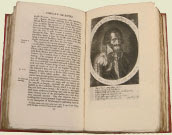With no money, no contacts and no business education whatsoever, Goldman began where any 21st-century self-starter would: “I Google-searched ‘business plan,’ and I found one and just plugged my own words into it. Then it wound up that Wesleyan has an alumni database, and so I looked for people who worked in finance and who graduated 10 or more years before I did. I e-mailed about 500 people, and I just said: ‘Look, I have this idea. What do I do now? What comes next?’ It was a fairly untraditional fund-raising process.”
The NYT on the rise and rise of Unigo.













